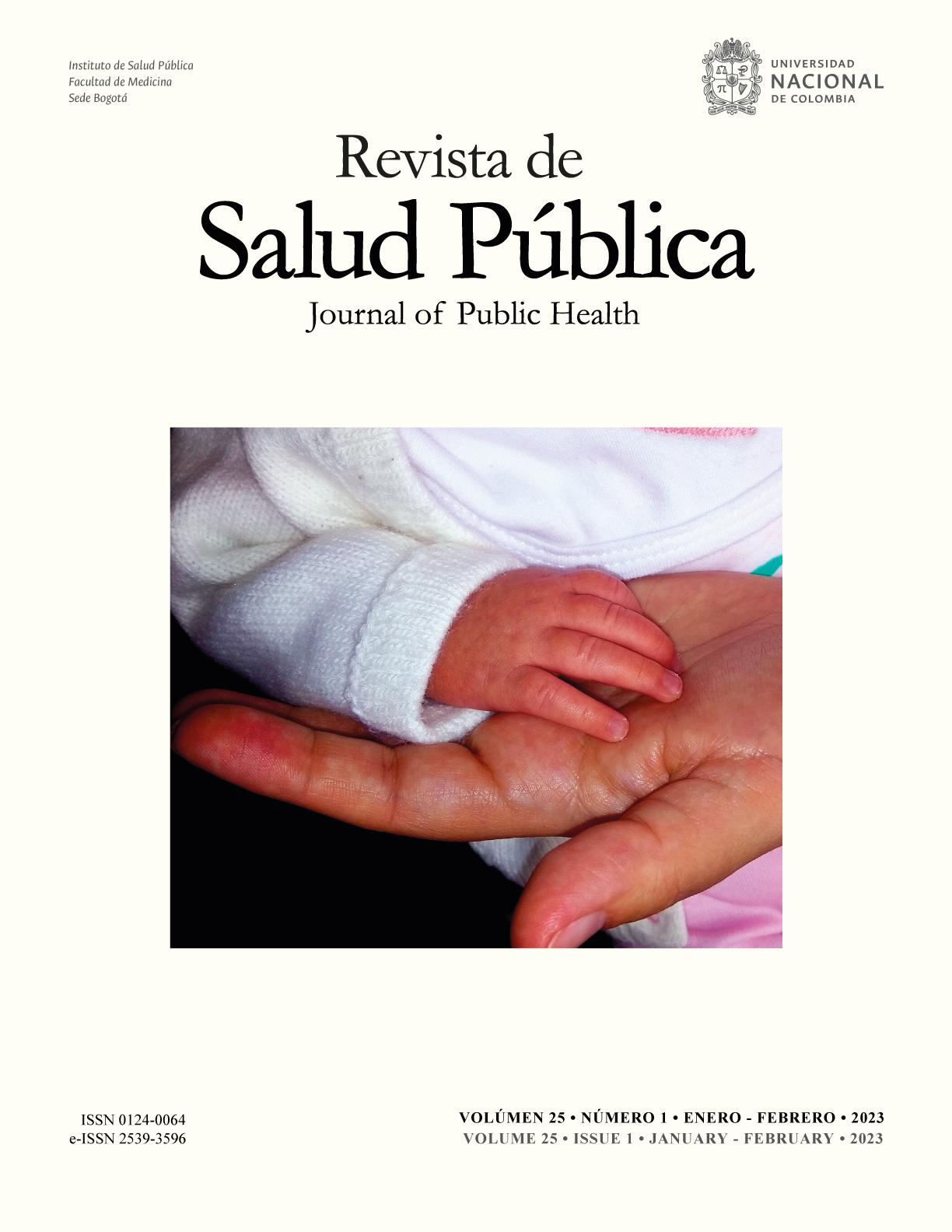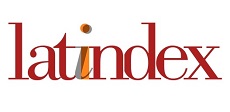Amamantar: una decisión de la mujer
Breastfeeding: a woman's decision
DOI:
https://doi.org/10.15446/rsap.v25n1.104821Palabras clave:
Lactancia materna, feminismo, derechos sexuales y reproductivos (es)Breast feeding, feminism, eproductive rights (en)
Descargas
La lactancia materna debe ser saludable y deseable tanto para las madres como para sus bebés. A pesar de ello, en este momento histórico, es necesario replantear el enfoque de la lactancia materna y examinar las razones socioculturales que la rodean. La lactancia materna es un derecho reproductivo protegido y promovido por múltiples organizaciones tanto en el país como en el mundo. Sin embargo, a pesar de estos esfuerzos, aún queda mucho por hacer para ofrecer a todas las mujeres, independientemente de su situación, un apoyo adecuado y el control sobre sus cuerpos y vidas, brindándoles una opción realista e informada.
Por lo tanto, se requiere una intervención multinivel de comunicación y sensibilización, donde las políticas integren diálogos con diferentes sectores de la sociedad para generar políticas apropiadas de apoyo a las madres lactantes, protección a las mujeres y una mayor conciencia en la sociedad sobre la lactancia materna, sin juzgar ni culpar a las mujeres. Todo esto tiene como objetivo garantizar los derechos humanos y la autonomía, que son componentes esenciales en la toma de decisiones de las mujeres sobre si desean amamantar o no a sus hijos.
En resumen, es importante reconocer la importancia de la lactancia materna y trabajar para superar las barreras socioculturales que dificultan su práctica, asegurando que todas las mujeres tengan acceso a la información y el apoyo necesarios para tomar decisiones informadas y empoderadas sobre la alimentación de sus hijos.
Breastfeeding is healthy and desirable for both mothers and their babies. However, at this historical moment, it is necessary to reconsider the approach to breastfeeding and examine the sociocultural reasons surrounding it. Breastfeeding is a reproductive right protected and promoted by multiple organizations both within the country and globally. Nonetheless, despite these efforts, there is still much to be done to provide all women, regardless of their situation, with adequate support and control over their bodies and lives, offering them a realistic and informed choice.
Therefore, a multi-level intervention of communication and awareness is required, where policies incorporate dialogues with different sectors of society to generate appropriate support policies for breastfeeding mothers, protection for women, and increased aware- ness in society about breastfeeding, without judging or blaming women. The aim of all this is to ensure human rights and autonomy, which are essential components in women's decision-making regarding whether they want to breastfeed their children or not.
In summary, it is important to recognize the significance of breastfeeding and work towards overcoming sociocultural barriers that hinder its practice, ensuring that all women have access to the necessary information and support to make informed and empowered decisions regarding the feeding of their children.
Referencias
McCarter-Spaulding D. Is Breastfeeding Fair? Tensions in Feminist Perspectives on Breastfeeding and the Family. J Hum Lact [Internet]. 2008 [citado 09 de agosto de 2022]; 24(2):206-212. Disponible en: https://doi.org/10.1177/0890334408316076.
Meyer DE, De Oliveira DL. Breastfeeding policies and the production of motherhood: a historical–cultural approach. Nurs Inq [Internet]. 2003 [citado 07 de agosto de 2022]; 10(1):11-18. Disponible en: https://doi.org/10.1046/j.1440-1800.2003.00154.x.
Oiberman A. Historia de las madres en occidente: repensar la maternidad [Internet]. Psicodebate. 2005 [citado 11 de agosto de 2022]. Disponible en: https://bit.ly/3B2KnR5. DOI: https://doi.org/10.18682/pd.v5i0.456
Thulier D. Breastfeeding in America: A History of Influencing Factors. J Hum Lact [Internet]. 2009 [citado 09 de agosto de 2022]; 25(1):85-94. Disponible en: https://doi.org/10.1177/0890334408324452.
Organización de las Naciones Unidas (ONU). Convención sobre la eliminación de todas las formas de discriminación contra la mujer [Internet]. Office of the High Commissioner for Human Rights (OHCHR). 1979 [citado 07 de agosto de 2022]. Disponible en: https://bit.ly/3Q5HrYl.
La lactancia materna debe considerarse como una cuestión de derechos humanos para bebés y madres [Internet]. Noticias ONU. 2016 [citado 10 de agosto de 2022];. Disponible en: https://bit.ly/3RuPE9D.
Fundación Salutia. Plan Decenal de Lactancia Materna y Alimentación Complementaria (PDLMAC) 2021-2030. Bogotá D.C.: Fundación Salutia; 2021.
United Nations Human Rights. Office of the High Commissioner for Human Rights (OHCHR) Report 2016 [Internet]. Office of the High Commissioner for Human Rights (OHCHR). 2016 [citado 10 de agosto de 2022]. Disponible en: https://bit.ly/3CRE30l.
Labbok MH, Smith PH, Taylor EC. Breastfeeding and feminism: A focus on reproductive health, rights and justice. Int Breastfeed J [Internet]. 2008 [citado 11 de agosto de 2022]; 3(1):8. Disponible en: https://doi.org/10.1186/1746-4358-3-8.
Van Esterik P. Lactancia materna: un asunto feminista [Internet]. World Alliance for Breastfeeding Action (WABA). [citado 08 de agosto de 2022]; Disponible en: https://bit.ly/3q6ngPb.
Organización Panamericana de la Salud (OPS). Semana Mundial de la Lactancia Materna 2020 - OPS/OMS [Internet]. OPS. 2020 [citado 13 de agosto de 2022]. Disponible en: https://bit.ly/3qyI9TD.
Benoit B, Goldberg L, Campbell-Yeo M. Infant feeding and maternal guilt: The application of a feminist phenomenological framework to guide clinician practices in breast feeding promotion. Midwifery [Internet]. 2016 [citado 13 de agosto de 2022]; 34:58-65. Disponible en: https://doi.org/10.1016/j.midw.2015.10.011.
Cárdaba García RM, Muñoz Conejero E, Cárdaba García I. Reflexiones sobre la lactancia materna desde el feminismo. Enferm Clínica [Internet]. 2019 [citado 11 de agosto de 2022]; 29(5):323-4. Disponible en: https://shorturl.at/iCHNS. DOI: https://doi.org/10.1016/j.enfcli.2019.03.004
Cómo citar
APA
ACM
ACS
ABNT
Chicago
Harvard
IEEE
MLA
Turabian
Vancouver
Descargar cita
Licencia

Esta obra está bajo una licencia internacional Creative Commons Atribución 4.0.
Esta revista provee acceso libre inmediato a su contenido bajo el principio de que hacer disponible gratuitamente investigación al publico apoya a un mayor intercambio de conocimiento global.
Todos los contenidos de esta revista, excepto dónde está identificado, están publicados bajo una Licencia Creative Commons Atribución 4.0.





















